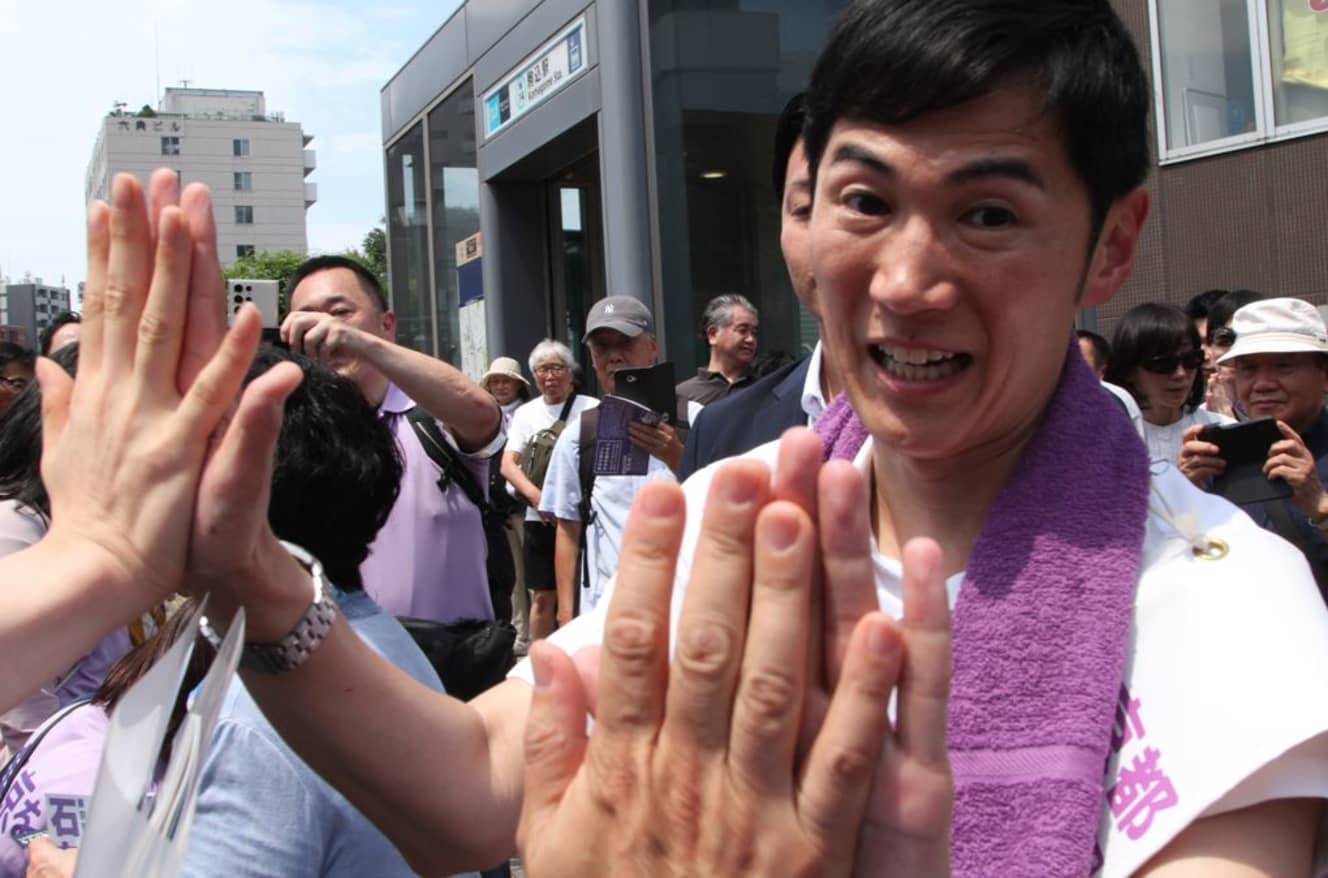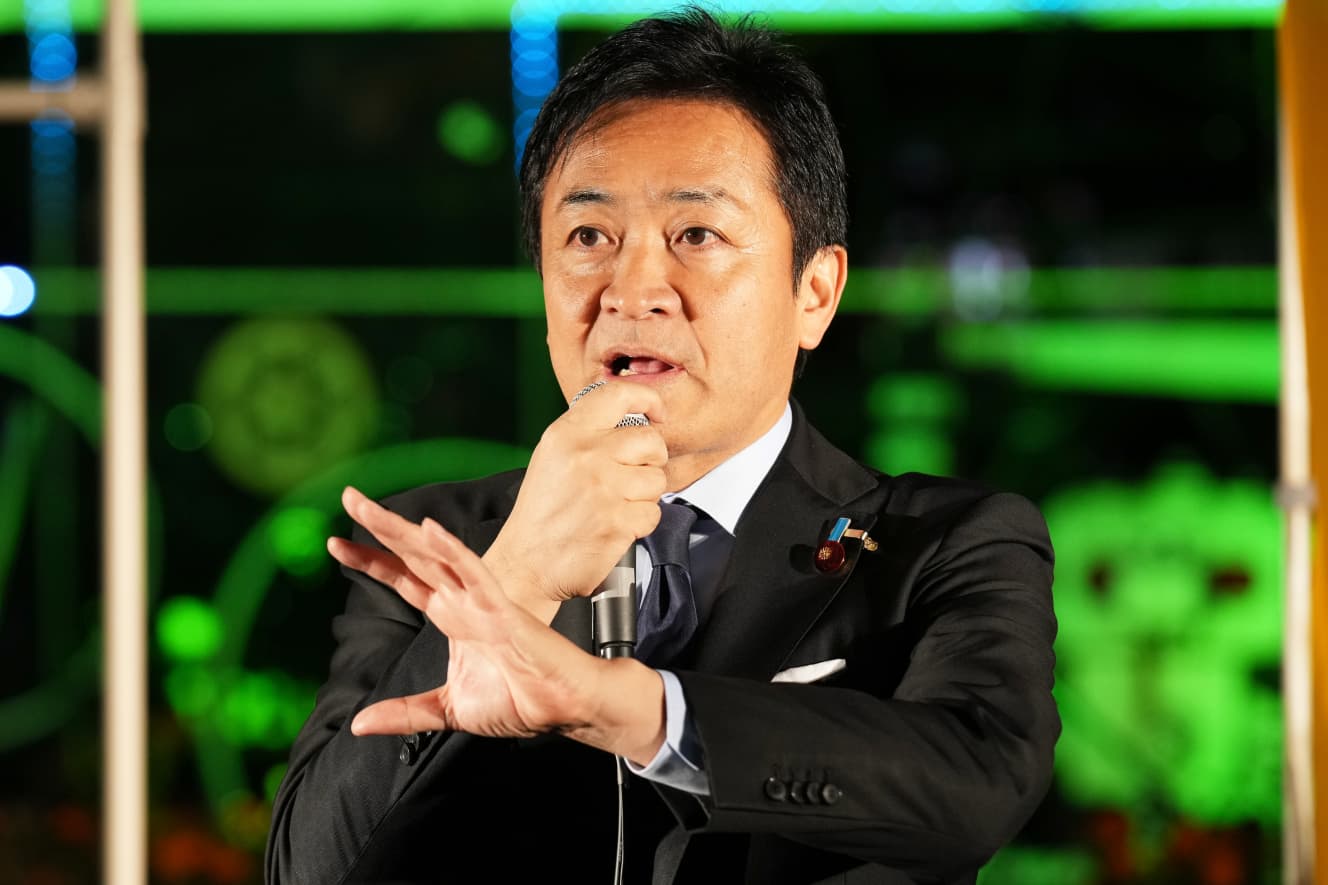Tokyo’s Secret Funds Scandal and Shinji Ishimaru’s New Party Plans: Election Blow?
Suspected of the same scheme as factional slush funds
The Tokyo Metropolitan Assembly’s Liberal Democratic Party (LDP) faction, “Tokyo Metropolitan Assembly LDP,” is suspected of turning the proceeds from party tickets sold beyond the sales quota at political fund-raising parties into unreported secret funds by failing to list the income in their political fund reports.
These parties, except during the COVID-19 pandemic, were held on a grand scale. A former metropolitan assembly member shared the following:
“Each assembly member was given 100 party tickets (worth 200,000 yen), with 50 tickets (worth 100,000 yen) as a quota, and the excess could be kept by the members. Veteran members with urban constituencies would pocket more than 100,000 yen in excess, and the extra amount was shared between the secretary’s office and the member. Meanwhile, some younger members would purchase party tickets with their own money to meet their quotas.”
While the specifics varied, in the secret fund cases that occurred in the Abe and Nikai factions, the proceeds from party tickets sold beyond the quota were either kickbacked from the faction’s office to the members or pocketed directly by the members without being submitted to the faction.
“It was a similar scheme, and both the office and the members had been doing it for years without questioning it. But about a year ago, the secret fund issue in the factions became a huge scandal. It was only a matter of time before it reached the Tokyo Metropolitan Assembly LDP,” said the former assembly member.
The Tokyo Metropolitan LDP has amended its financial reports, acknowledging that there was unreported income from parties held between 2022 and 2023. Both the faction and individual members’ financial reports failed to list the income, and it is believed to constitute a violation of the Political Funds Control Act (false reporting).
The outcome of the crackdown is…

However, the amount of the slush fund in this case is about 1 million to 2 million yen per legislator. In the case of factional slush fund scandals involving Diet members, prosecutors had used 40 million yen as the threshold for crackdown. Amid whispers that the investigation may be postponed considering the impact on the Tokyo Metropolitan Assembly elections, the key issue now is how thoroughly prosecutors will pursue the investigation.
“Since December of last year, the Tokyo District Prosecutors’ Special Investigation Division has been summoning supporting prosecutors and questioning them voluntarily. It is said that the amount of unreported funds for the faction is 30 million yen, and if the intentionally unreported amount is that large, there is a possibility that Mr. Y, who was involved in the accounting, could be charged with violation of the Political Funds Control Law (false reporting)” (National newspaper legal reporter)
While the Tokyo Metropolitan Assembly’s ruling party is in a bind, that man stood up.
Shinji Ishimaru, the former mayor of Aki Takada City (42), who attracted attention in the previous Tokyo gubernatorial election. Ishimaru had planned to announce the establishment of a new regional political party on January 15 at the Tokyo Metropolitan Government Building, but just two days before, on the 13th, he announced the cancellation of the press conference on his X account. However, on the same day, it was announced that the conference would be held at a different venue. In the new release for the press conference, there were detailed conditions, such as asking whether mainstream media and network media with 1 million registered users were present.
At the beginning of the press conference, he specifically called out the Japan Times, which had been the organizer of the press club, and said:
“Is it okay for you to just leak the release as part of information management? There has still been no apology. It’s arrogant.”
From the outset, Ishimaru split the media, and although he himself claimed he would not run, the question remains whether he can generate enough momentum to defeat the Liberal Democratic Party’s candidate.
“Within the Tokyo Metropolitan Government and the Tokyo Metropolitan Assembly, Ishimaru’s case is hardly being discussed. It depends on the candidates he supports, but there are likely to be candidates whose main goal is self-promotion, similar to those who ran in the Tokyo gubernatorial election last year, so his influence is seen as limited. Instead, attention is focused on the momentum of the Constitutional Democratic Party, which made a significant advance in the last House of Representatives election” (Tokyo Metropolitan Government executive).
Declares, “We will move forward with our candidacy.”

In a Yomiuri Shimbun public opinion poll conducted in December of last year, the support rate for the Constitutional Democratic Party of Japan (CDP) reached 12%, surpassing the 8% of the Constitutional Democratic Party and becoming the first opposition party for the first time, trailing only the Liberal Democratic Party (LDP) at 24%.
Although the party does not hold any seats in the Tokyo Metropolitan Assembly, party leader Yuichiro Tamaki (55) has expressed his intention to gain seats in the upcoming Tokyo Metropolitan Assembly elections, stating, “We received significant expectations in the House of Representatives election, and we are progressing with candidate selection for the Tokyo Metropolitan Assembly elections.”
The Constitutional Democratic Party of Japan is also advancing cooperation with the regional political party “Tomin First no Kai,” of which Tokyo Governor Yuriko Koike (72) serves as a special advisor. In the April by-election for Tokyo’s 15th district in the House of Representatives, Tamaki supported the independent candidate Hirotada Ototake (48), whom Governor Koike backed, and visited multiple times. The two parties have held study sessions together, and in the most recent House of Representatives election, Tomin First collaborated with the Constitutional Democratic Party.

“By minimizing competition in the Tokyo Metropolitan Assembly election, we want to increase the number of seats together.”
Said a senior official from Tomin First no Kai continued.
“Since the Liberal Democratic Party has no momentum, the Constitutional Democratic Party of Japan will likely make significant progress. If we gain a certain number of seats, we would like to form a ruling coalition in the Tokyo Metropolitan Assembly with Tomin First no Kai, the Komeito Party, and the Constitutional Democratic Party of Japan. While we haven’t yet discussed adjustments for electoral districts, in areas with five or more seats, like Setagaya (8 seats), Ota (7 seats), and Nerima (7 seats), it shouldn’t be a problem if the Constitutional Democratic Party of Japan has overlapping candidates. Since Governor Koike and Tamaki, the two leaders, have a good relationship, there shouldn’t be major disputes.“
The unresolved issue of the illicit funds, which has been lingering for more than a year without clarification, casts a shadow over the Tokyo Metropolitan Assembly’s Liberal Democratic Party. Will the Constitutional Democratic Party of Japan secure seats by riding the momentum from the House of Representatives election and form a partnership with Tomin First no Kai? Or will Shinji Ishimaru create another stir? As the Tokyo Metropolitan Assembly election this summer approaches, the battle has already begun.
Interview and text by: Daisuke Iwasaki Photo: Afro
